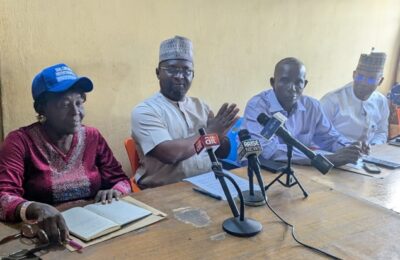Nigeria kneels in prayer each morning, yet stands in moral confusion by nightfall. From church pulpits to mosque loudspeakers, God’s name echoes across the land—but so do the cries of innocence lost and values fading. A nation hailed as one of the world’s most religious is now battling a wave of moral decline so strong it has reached even the youngest corners of our society. What began as whispers of indiscipline has grown into a national emergency. In schools where children once recited morning devotionals, we now hear tales of behaviours too weighty for their age, and choices too grave for their future.
Among primary and secondary school students, the spread of immorality is no longer a hidden tragedy. Teenagers—some barely in their uniforms—are now exposed to adult-like lifestyles, often shaped by the very media and society that should guide them. From inappropriate relationships between students and adults to rising cases of teenage pregnancy and abortion, the sacred innocence of youth is being replaced by a dangerous appetite for early independence and pleasure. Many girls never return to the classroom after falling pregnant, while boys grow up thinking fatherhood without responsibility is a badge of honour. “Train up a child in the way he should go,” Proverbs 22:6 warns, “and when he is old, he will not depart from it.” But what if we have stopped training them?
In the name of modernity, morality has been sacrificed. Skits, social media, and even some music idols glamorize sexual exploration and rebellion, leaving children mimicking what they barely understand. Parents are either overwhelmed or unaware, and teachers—many underpaid and overburdened—can’t fight this battle alone. The lines between right and wrong have become blurred, and the moral compass that once pointed north now spins in confusion. There was a time when elders corrected; now they laugh, record, and upload.
Our failure to protect the innocence of the next generation is not just a social flaw—it is a spiritual disaster. We pray loud in churches, fast long in mosques, yet ignore the bleeding of our children’s conscience. “But whoever causes one of these little ones who believe in me to stumble,” Jesus said, “it would be better for him to have a millstone hung around his neck and to be drowned in the depth of the sea” (Matthew 18:6). Nigeria is dancing too close to that warning. We speak of revival, but allow rot. We shout hallelujah, but silence truth in our homes.
Religious gatherings fill stadiums, but righteousness is absent in classrooms. School dropout rates due to teenage pregnancy are rising like morning smoke—visible, painful, and slowly choking hope. Abortion clinics operate quietly, while many girls carry shame heavier than their schoolbags. This is not the future we prayed for. This is not the fruit of true faith. A nation cannot claim to fear God and yet remain silent while its children stray. Our temples are full, but our homes are broken. Our preachers shout fire, but our families need healing.
If there is to be any national repentance, it must begin with the family and flow into the school. Religious leaders must preach truth, not just trend. Parents must rise as watchmen over their homes, not just financiers of education. Teachers must be empowered to shape minds, not just push syllabuses. We must be bold enough to tell our children: “You are worth more than a moment of pleasure; your destiny is too precious for distraction.” The same way we guide them to pass exams, we must guide them to preserve virtue.
Nigeria must return to the old paths—where honour was taught before algebra, and godliness was part of the school timetable. We can no longer pretend that religiosity without morality will save us. “If the foundations be destroyed, what can the righteous do?” (Psalm 11:3). The answer is clear: rebuild. Rebuild truth in our classrooms. Rebuild honour in our homes. Rebuild dignity in our children. That is the revival Nigeria needs—not louder worship, but deeper wisdom.
– Inah Boniface Ocholi writes from Ayah – Igalamela/Odolu LGA, Kogi state.
08152094428 (SMS Only)




